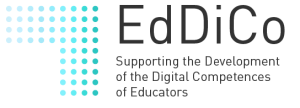This manual explains how digitally agile scholars can comfortably navigate the digital world of today and tomorrow. It foregrounds three key domains of digital agility: getting involved in research, education and (community) service, mobilising (digital) skills on various levels, and acting in multiple roles, both individually and interlinked with others. After an introduction that outlines the foundations of this three-dimensional framework, the chapters focus on different roles and skills associated with evolving as a digital scholar. There is the author, who writes highly specialised texts for expert peers; the storyteller, who crafts accessible narratives for a broader audience in the form of blogs or podcasts; the creator, who uses graphics, audio, and video to motivate audiences to delve deeper into the material; the integrator, who develops and curates multimedia artefacts, disseminating them through channels such as websites, webinars, and open source repositories; and finally the networker, who actively triggers interaction via social media applications and online learning communities. Additionally, the final chapters offer a blueprint for the future digital scholar as a professional learner and as a “change agent” who is open to and actively pursues innovation. This book is a guide for those willing to enhance their digital academic profile. It equips a broad readership with the skills and the mindset to harness new digital developments and navigate the ever-evolving digital age. It gives them some fundamentals to build upon, some pointers and indicators to move forward, and some critical insights to reflect on. In other words, this handbook gives the readers answers to how they can evolve as digital scholars. The emphasis of the book will be on higher education, and most of the book will concentrate on the specific academic context. Nevertheless, we argue that many more people could recognise themselves in what we present. We think of people involved in all kinds of teaching (like academic developers, trainers, instructors, coaches); people working in research institutions; those interested in thinking about their own work in terms of action research; or people with a mission in the (digital) society of today. Although our examples and good practices will mainly come from the academic world, we hope to inspire and get inspired by digital scholars outside academia. This book aims to be a handbook, i.e., in between a purely scientific and a merely popularising book. We describe the scientific basis, of course, in the style of a decent academic publication, but we do not overload the book with typical research-oriented references and footnotes. We hope you can appreciate our efforts to balance between a truly academic and a more informal, colloquial approach. When we sometimes tend to lean a little more to one side, that simply reflects how we live and work as individual digital scholars in diverse settings, flexible enough to adapt quickly and always professional to practise what we preach. We therefore start from our personal experiences in our own academic lives. We try to explain and illustrate the topics in a practical way so that a large variety of readers with different backgrounds and levels of knowledge find them interesting and handy, full of inspiring insights and examples to apply into their own practice and evolvement as digital scholars. And by the way: isn’t ‘a digital scholar’ someone who intrinsically mixes theory (scholar) and practice (digital)? Think about it!
| Admission procedure | Open to all |
| Entry requirements note | none |
| Type of credential | None |
Back to search

